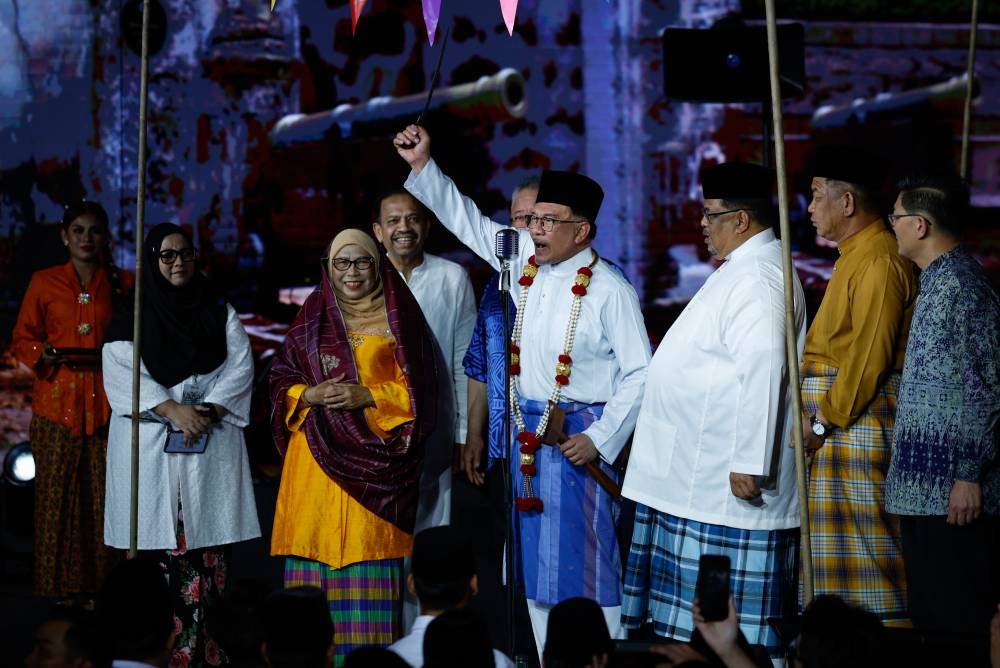Pro-Malay faction a risk, says analyst on Malaysia's EIU Democratic Index ranking breakdown
This unity government, while aiming for a liberal and multicultural society, the government, still faced resistance from pro-Malay factions, posing risks to Malaysia's democratic consolidation.

SHAH ALAM - The Economist Intelligence Unit's (EIU) 2023 Democracy Index reaffirms Malaysia's position as the 40th-ranked country out of 167, consistent with its standing in 2022.
While the nation's overall score experienced a slight dip from 7.3 to 7.29, primarily due to a decline in the functioning of government, improvements in civil liberties partially offset this setback, with scores in other categories remaining unchanged.
The scores for al calories remain unchanged in 2023 compared to 2022; which included electoral process and pluralism; functioning of government; political participation; political culture and civil liberties.
Notably, Malaysia maintains its classification as a "flawed democracy", positioning it between South Korea and India, surpassing all its Southeast Asian counterparts.
Malaysia’s lowest score was in the civil liberties category, where it matches India and Thailand, while its highest score was in the electoral process and pluralism category, where it matches South Korea and Timor-Leste.
To unravel the ranking further, Sinar Daily spoke to EIU Asia’s senior analyst Sumedha Dasgupta.
In the realm of civil liberties, she stated that Malaysia exhibited progress in 2023, credited to institutions facilitating citizen engagement in addressing grievances.
The channels include the Tribunal for Consumer Claims, the Ombudsman for Financial Services and the Malaysian Communications and Multimedia Commission, among others.
Despite media constraints, official harassment, and stringent cybercrime laws, she said the Malaysian media landscape retains diversity in opinion expression.
Conversely, she admitted that there was a decline in the functioning of government reflects waning public trust in political entities, exacerbated by recent political turmoil, although a modest stabilisation was observed in 2023.
Malaysia's democratic trajectory has seen notable fluctuations, said Sumedha.
“Incremental improvements from 2017 to 2022 were attributed to factors such as heightened voter turnout in the 2018 elections and the smooth transfer of power between ruling coalitions.
“Increased campaigning opportunities, especially on social media, and enhanced political participation, including a rise in female parliamentary representation, further contributed to this positive trend,” she said.
However, Sumedha stated that challenges still persist, with successive unelected governments in 2020 and 2021, and a hung parliament in the 2022 elections leading to the formation of a unity government of political rivals.
“In 2020, the unexpected transition from the Pakatan Harapan (PH) coalition government to Perikatan Nasional (PN) also led to modest improvements in certain aspects of electoral process and functioning of government.
“More recently, an improvement was visible in political participation, specifically an increase in the number of female members of parliament,” she said, adding that a number of factors have impacted the country’s score over the years.
This unity government, Sumedha said while aiming for a liberal and multicultural society, the government - namely Prime Minister Datuk Seri Anwar Ibrahim, still faced resistance from pro-Malay factions, posing risks to Malaysia's democratic consolidation.
This could be seen in the more recent six state elections in August 2023, which saw the three PN states - Kedah, Terengganu and Kelantan winning victoriously and at the same making inroads in PH's stronghold Selangor.
Sumedha said the strengthening of Malay support for the PN in ways that could still risk undermining the unity government.
Download Sinar Daily application.Click Here!















